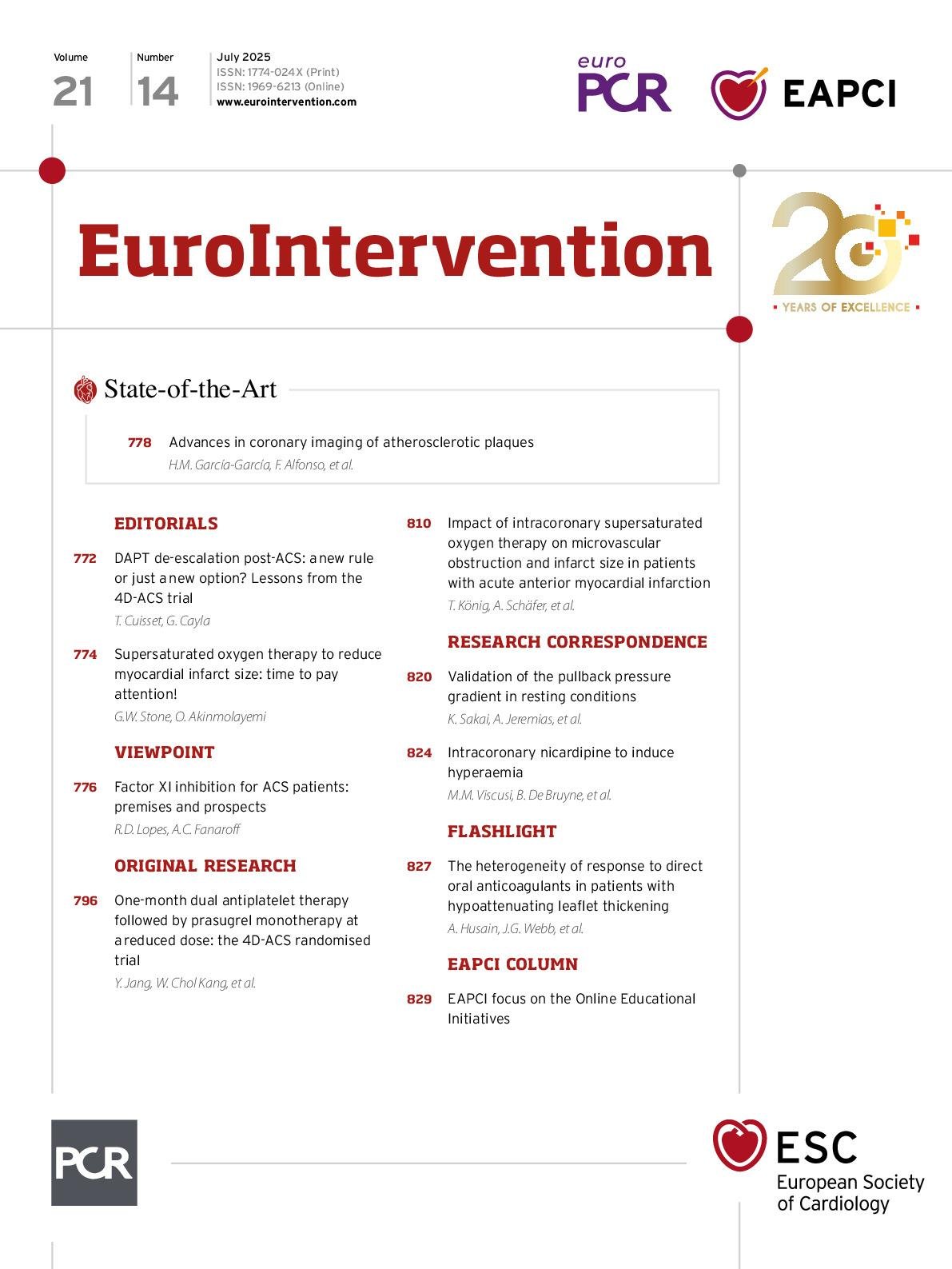EAPCI Online Educational Initiatives include the EAPCI Journal Club and EAPCI webinars. The goal of these online initiatives is to provide high-quality educational content for EAPCI members.
The EAPCI Journal Club commenced during the 2022-2024 term and has continued with great success into the 2024-2026 term. Although the credo of the EAPCI Journal Club is #bythefellowsforthefellows, there are significant educational benefits for all members of the interventional cardiology community. The Journal Club sessions follow a standard process, in which a high-impact paper is presented by an EAPCI fellow, followed by insights and critical appraisal from a senior author of the paper or a recognised expert in the topic. EAPCI members may put forward burning questions surrounding the trial prior to the Journal Club session using the EAPCI presidential X account, and three questions which are deemed of highest value to the community are addressed by the expert during the presentation. Ongoing interaction from the audience is warmly welcomed during each Journal Club session, with questions moderated by a dedicated chat moderator acting as the voice of the interventional community in putting these questions to the expert in the room.
So far in 2025, there have been two EAPCI Journal Club sessions. The season kicked off with OCCUPI, with Thomas Johnson and Erik Rafflenbeul acting as moderator and chat moderator, respectively, and Pawel GÄ sior presenting the key findings of the trial. The session was greatly enhanced by the presence of Sung-Jin Hong, the first author of the trial, who provided his perspective, highlighting the differences between the OCCUPI trial and ILUMIEN IV as well as providing interesting insights into the use of intracoronary imaging in both East Asian and non-East Asian countries.
The second Journal Club session of 2025 took place in June, with the RHEIA trial discussed. The moderators were EAPCI President Alaide Chieffo and chat moderator Erik Rafflenbeul. Giulia Botti presented the results of the trial from the fellows’ perspective, and Hélène Eltchaninoff, the senior author, provided her valuable insights into this important study. Once again, the session was very interactive, with interesting and beneficial questions asked by the EAPCI community, leading to a very educational discussion amongst the hosts and expert.
EAPCI webinars allow a more in-depth dive into a particular topic relevant to the EAPCI community. During the “Interventional therapy for resistant hypertension: state of the art in 2025 and future perspectives” webinar, Emanuele Barbato, EAPCI Past-President, hosted Felix Mahfoud and Isabella Sudano. There was an extensive discussion and review of the current indications for renal denervation, appraisal of the contemporary trial data for the management of resistant and uncontrolled hypertension, along with a practical discussion on how to set up a successful renal denervation pathway.
Finally, a two-part webinar series focused on the management of obese patients with and without diabetes in acute coronary syndromes. Part one, hosted by EAPCI President Alaide Chieffo, focused on inpatient care, with a case presentation by Valeria Paradies and a review of the evidence from Mamas Mamas. Finally, Konstantinos Koskinas from the European Association of Preventive Cardiology discussed the importance of a multidisciplinary approach for these patients, focusing on the importance of pharmacological therapy, including prioritising the use of antidiabetic medications with improving cardiovascular benefit and, finally, considering bariatric procedures in certain highly selected patients.
In the second of this webinar series, Thomas Luescher hosted, Jorge Sanz Sanchez presented a case, and Massimo Federico, a diabetologist, provided significant insights into the management of cardiovascular disease in patients with diabetes. Finally, Giulio Stefanini provided his insight into inflammation in acute coronary syndrome, the clinical impacts, and how this can be managed, touching on the use of GLP1-RA.
The webinar series has been well received by the community and is available to watch on ESC 365 (esc365.escardio.org) for any members who may have missed out on the live transmissions.

